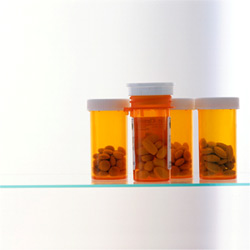What’s the Worst Mental Illness?
I, as a good little webmistress, keep an eye on my web analytics. So yes, I know some things about my audience, and one of the things I know is what people are searching for when they find me. This sometimes influences what I write about, like today: What is the worst mental illness?
What is the Worst Mental Illness?
That depends on how you judge it. You could judge it by suicide rate, in which case:
- Anorexia is the worst with about a 20-25% suicide rate*
- Bipolar is second worst with about a 15% suicide rate
- Schizophrenia is third worst with about a 10% suicide rate
You could judge the worst mental illness based on disability rates in which case you would probably get:
- Schizophrenia as the worst
- Bipolar as second worst
- Depression as third worst (although more people with depression are on disability overall)
Perhaps schizophrenia is the worst as it’s associated with more psychosis (delusions and hallucination). Perhaps major depression is worst because of the number of treatment-resistant cases.
Or perhaps the answer is simply this: The worst mental illness is the one you have.
Read More













Recent Comments